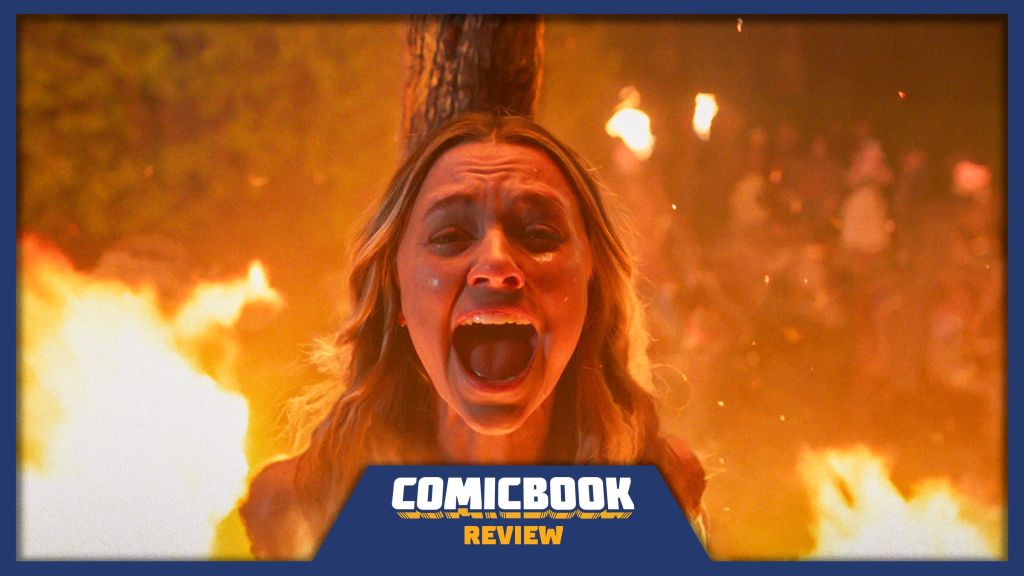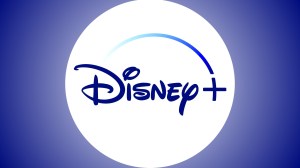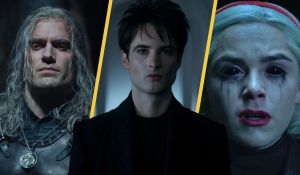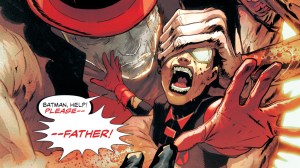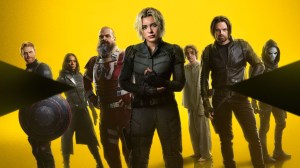When Witchboard first arrived in 1986, it tapped into the Ouija board craze of the time, spinning a supernatural tale of a cursed object. The result failed to impress critics but turned a modest profit, leaving it as a minor relic of ’80s horror that would take years to be rediscovered, and even then without much fanfare. That’s why it feels odd that nearly four decades later, a remake of Witchboard is making its way into theaters. With so little to salvage from the original beyond the basic premise, this new movie retains only the idea of a dangerous board and a couple of callbacks, struggling to justify itself as a remake. However, Witchboard‘s bigger problem is how, from start to finish, it’s caught between two incompatible impulses, trying and failing to juggle mindless genre fun and serious character drama.
Videos by ComicBook.com
The new Witchboard story centers on Emily (Madison Iseman) and Christian (Aaron Dominguez), a young couple opening a restaurant in New Orleans. While picking up mushrooms in a nearby woods, they come across a witchboard once owned by French sorceress Naga Soth (Antonia Desplat). Unaware of its sinister history, they bring it home. Soon, Emily becomes the target of Naga Soth’s spirit, enduring a string of disturbing visions and freak accidents that affect the people surrounding her. Christian, meanwhile, refuses to take the events seriously until it’s too late.
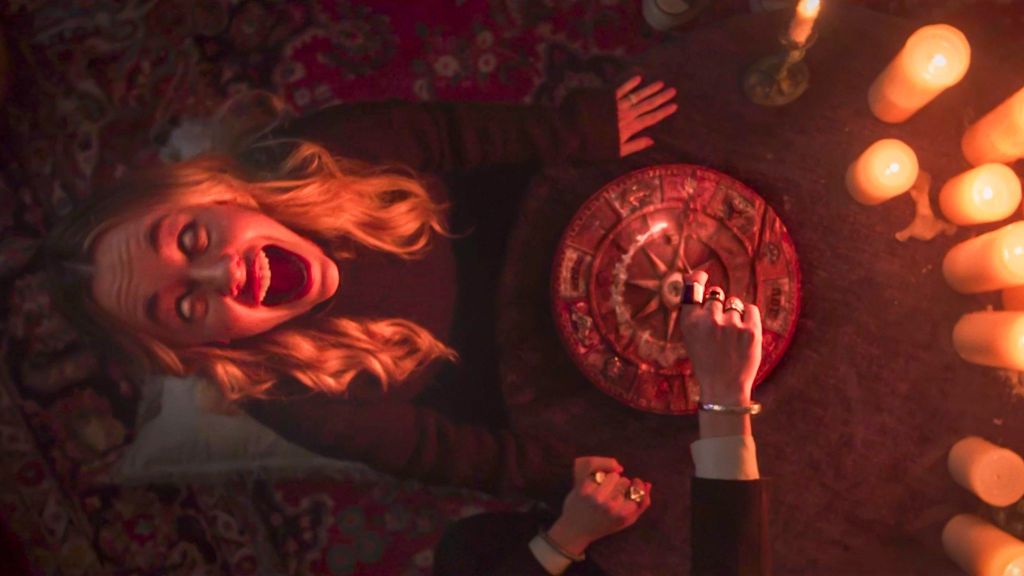
Witchboard‘s premise offers a familiar cursed-object setup, but director Chuck Russell, of A Nightmare on Elm Street 3: Dream Warriors fame, is a horror veteran who knows how to shoot a scene for maximum tension. One early standout sequence in the restaurant kitchen, for instance, draws out the suspense by lingering on glinting knives and spinning blades, daring the audience to guess how the inevitable disaster will play out. In these moments, Witchboard hints at the unapologetic pulp fun that horror fans crave, and which should obviously have been the single focus of the movie. Unfortunately, the movie spends too much time steering away from its best elements.
Instead of leaning into the over-the-top horror promised by its best scenes, Witchboard repeatedly hits the brakes to explore its characters’ internal struggles. This would be admirable if the characters were compelling, but they are constructed from one-note traits. Emily is a former addict, Christian is a wide-eyed dreamer who has sunk his life savings into their café, and his ex-girlfriend Brooke (Melanie Jarnson) is a wild-card instigator. These surface-level archetypes are perfectly serviceable for a bloody romp, but the script insists on treating them with a seriousness it cannot sustain. As a result, the more Witchboard spotlights their inner turmoil, the more their lack of depth becomes painfully obvious.
This identity crisis of Witchboard is most glaring in its treatment of witchcraft. The film can’t decide if its central witch, Naga Soth, is a cartoonish monster meant only to cause chaos, or a tragic figure of historical oppression. A wildly entertaining horror movie can absolutely feature a purely evil witch — Sam Raimi’s Drag Me to Hell is a masterclass in this — but Witchboard also tries to give Naga Soth a sympathetic backstory, framing her as a victim of patriarchal witch trials. These two goals are fundamentally at odds, and it’s even worse when a movie tries to be conscious about women’s oppression while also failing to give most of its female characters genuine agency over their fates. Fortunately, Desplat seems to know exactly what kind of movie she’s in, delivering a wonderfully manic performance. She and Jamie Campbell Bower, playing a deliciously evil occult expert, offer a perfect proof-of-concept for the gleefully campy film that the Witchboard remake could have been.
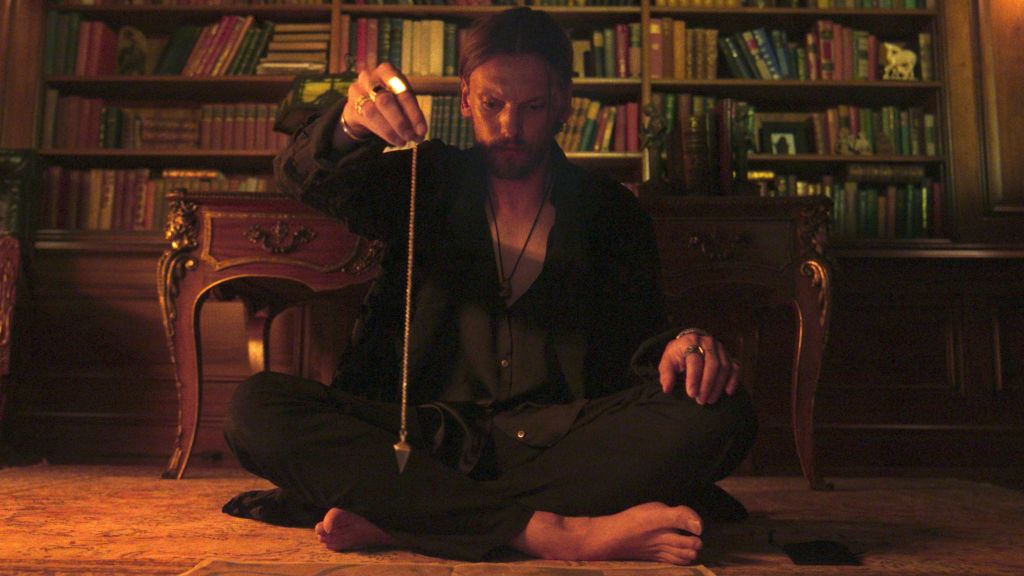
Witchboard‘s flaws are magnified by a padded run time that stretches to nearly two hours. The genuinely inventive horror set pieces are the main attraction, but they are separated by long, sluggish stretches of melodrama. This pacing issue culminates in a frustrating finale that wastes the film’s most original idea, tacking on an extra 20 minutes simply to arrive at a tidy, unearned happy ending.
There is still some fun to be had with Witchboard. A few of the kills are ingeniously staged, and Russell’s direction shines when he employs practical effects. However, even these moments are often undercut by the distracting use of digital blood and fire. While likely a concession to budget, the effect is bothersome because an unconvincing practical blood still feels more tangible than its weightless CGI counterpart. In the end, Witchboard is a decent but deeply flawed film that offers just enough standout moments to justify a casual watch. Its failure to commit to a consistent tone, however, makes it an ultimately forgettable experience. It’s a shame, because somewhere inside this bloated and scattered movie is a tighter, crazier, and far more entertaining film screaming to get out.
Rating: 2.5/5
Witchboard lands in theaters on August 15th.

